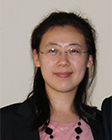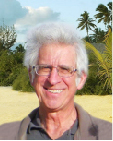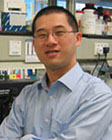| Scientific Program (Updated on 12 May 2016) | |||||||||||
| DAY 1 May 25, 2016 (Wed) | |||||||||||
| 14:00-18:00 | Registration | ||||||||||
| 16:30-18:00 | Pre-Conference LectureNeuron-Glia interactions in neurotransmission: Roles of oxidative and glycolytic ATP as energy source | ||||||||||
| 18:00-19:30 | Evening Reception | ||||||||||
| 19:30-20:30 | Keynote Lecture (I) | ||||||||||
|
Chair
Arne Schousboe obtained his M.Sc. in biochemistry from The University of Copenhagen in 1968 at a time where an M. Sc. was considered equivalent to a Ph.D. He subsequently (1978) earned his Doctor of Science (D. Sc.) degree also from University of Copenhagen. After a post-doc period with Dr. Eugene Roberts at the Department of Neuroscience, City of Hope National Medical Center in Los Angeles 1972-1973 he came back to the University of Copenhagen to resume a tenured position as Assoc. Prof. at the Medical Faculty. In 1990 he moved to the Royal Danish School of Pharmacy, Copenhagen as a Full Professor of Biochemistry and has remained in this position also when this Institution changed to become an independent University and subsequently a Faculty of Pharmaceutical Sciences, University of Copenhagen which lately was incorporated in the Faculty of Health and Medical Sciences still at the University of Copenhagen . He has served as the Department Chair from 2005 to 2010 and is now part time Professor of Neuropharmacology in Department of Drug Design and Pharmacology at University of Copenhagen. He has been working on astrocyte function focusing on amino acid neurotransmission during the past more than 4o years and is currently engaged in studies of glutamate and GABA homeostasis and metabolism. He has published over 550 papers on these and related topics. He has served on the Editorial Board on numerous neuroscience journals over the years and is currently the Editor-in-Chief of Neurochemical Research and Editor of the book series Advances in Neurobiology.
|
|||||||||||
| 19:30-20:30 |
 Ursula Sonnewald received her Ph.D. degree in Chemistry at the University of Saskatchewan, Saskatoon (Canada) and subsequent to studies in Hamburg (Germany) and Canada; post-doctoral periods were spent in Salt Lake City, University of Utah, USA, in Copenhagen at the Carlsberg Research Center, Denmark, and at The Brookhaven National Laboratory in Upton, New York, USA. She worked in the CNS Department of Novo Nordisk, Copenhagen, Denmark, developing antiepileptic drugs and then moved to Trondheim, Norway to work at the Norwegian University of Science and Technology (NTNU) applying magnetic resonance spectroscopy to the study of brain cell metabolism in collaboration with Dr Arne Schousboe at the University of Copenhagen, Denmark. Since 1996 she is a full Professor at the Department of Neuroscience at NTNU.
|
||||||||||
| DAY 2 May 26, 2016 (Thu) | |||||||||||
| 9:00-10:00 | Keynote Lecture (II) | ||||||||||
|
Chair
 Professor Ken KL YUNG is the Associate Head and Professor in the Department of Biology, Hong Kong Baptist University. Professor Yung graduated with his Doctor of Philosophy degree in Neuroscience from University of Oxford. He has published over 100 SCI journal papers. He has served in editorial boards of many SCI journals. His expertise is in neuroscience, molecular biotechnology and nanomedicine. His current research is on neural stem cell and development of new treatments of brain neurodegenerative diseases. He has obtained research funding from National Foundation of Science China and Hong Kong and holding over 15 patents. He has served in Councils of international healthcare organizations including International Brain Research Organization, Hong Kong Movement Disorder Society and Hong Kong Biotechnology Organization.
|
|||||||||||
| 09:00-10:00 |
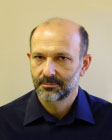 Vladimir Parpura, MD, PhD, MAE, holds both a medical degree, awarded from the University of Zagreb in Croatia in 1989, and a doctorate, received in Neuroscience and Zoology from Iowa State University in 1993. He previously held faculty appointments at Iowa State University, University of California Riverside, and University of Rijeka, Croatia. He has been elected as a Member of Academia Europaea (MAE) in 2012. He is presently a tenured Professor in the Department of Neurobiology, University of Alabama at Birmingham, U.S.A. His current research includes: i) studying the modulation of the Ca2+-dependent glutamate release from astrocytes in health and disease; ii) assessing the role of the enteric glia in gut functions; iii) visualization of vesicular/receptor trafficking; iv) examination of the nature and energetics of interactions between exocytotic proteins using single molecule detection approaches; v) development of scaffolds and dispersible materials, most notably modified carbon nanotubes, which can be used in repair after brain injury and/or for the brain-machine interface; vi) development of biosensors (e.g. botulinum toxin and nanofabricated carbon-based detectors); and viii) bio-mimetic micro-robotics. The work done in these overlapping categories is highly interrelated. Parpura has been interfacing neuroscience with nanoscience/nanotechnology, synthetic biology and biomedical engineering.
|
||||||||||
| 10:00-10:50 | Session I Neuron-astrocyte Interactions and the Neurovascular Coupling | ||||||||||
|
Chair
 Biochemist from the University of Lisbon, João Duarte is currently a FNS Ambizione fellow at the Laboratory for Functional and Metabolic Imaging, EPF Lausanne. In 2009, he received a Ph.D. degree in Biochemistry (specialisation in bioenergetics) from the University of Coimbra, and was recruited as a postdoctoral fellow researcher by the University of Lausanne. He has always been interested in understanding how disruption of brain metabolism linked to alterations of brain function and structure, leading to pathological behaviour. His current research aims at quantifying the coupling between brain energy metabolism and glutamatergic/GABAergic activity at different functional states, and to identify metabolic alterations in the brain of experimental models for diabetes and stress-induced mood disorders.
|
|||||||||||
| 10:00-10:25 |
 Martin Lauritzen, Professor of Clinical Neurophysiology and Translational Neurobiology, Uni-versity of Copenhagen, and Consultant, Department of Clinical Neurophysiology, Glostrup Hospital Honors:Harold G. Wolff Award (American Headache Association).Award of the Danish Neurological Society and Danish Migraine SocietyArnold Friedman Distinguished Clinician/Researcher Award (American Headache Association)Humboldt Research Award in Medicine (Alexander von Humboldt Stiftung, Germany). Positions of trust, reviews for journals: Evaluator of candidates for full professorships at Baylor College of Medicine, Houston Texas; University of Rochester, Rochester, NY; University of Maryland, MD; Harvard University, Massachusetts; UCSD, San Diego. Evaluator of Director of Institute for the Max-Planck Society 2007. Member of Expert Panel for the Bi-national Science Foundation (USA – Israel), Academy of Czech Republic; Migraine Trust, UK; Wellcome Foundation, UK; Suisse Research Grant Agency; MRC, UK; Royal Society, UK; Deutsche Forschungsgemainschaft, Germany. TUBITAK, Turkish Scientific Agency; MRC Canada. Editorial Board, ‘Clinical Neurophysiology’ 2000-2005; Journal of Cerebral Blood Flow & Metabolism 2006-2009. Editor, Neuroimage 2008; associate Editor, Frontiers in Neuroscience since 2009. Editor-in-chief, Journal of Cerebral Blood Flow & Metabolism, since 2009. International Scientific Advisory Board Member, Max-Planck Institute for Neurology, Cologne, Germany 2008-2013, and Max-Planck institute for Cognitive Neuroscience, Leipzig, since 2009. |
||||||||||
| 10:25-10:50 |
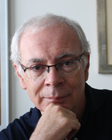 Andrea Volterra is Full Professor at the Department of Fundamental Neurosciences, Univ Lausanne, Switzerland since 2001. He obtained a PhD in Pharmacology from Univ Milan, Italy (1985), joined the labs of S. Siegelbaum and E. Kandel at Columbia University, New York, as Research Scientist (1986-89) and then started his independent career as Assistant and Associate Professor at Dept. Pharmacology, Univ Milan (1990-2000). He is member of Academias, Neuroscience societies and won several prices. Prof. Volterra obtained >30 grants as PI, including currently, the ERC Advanced. He is author of >100 publications with >8000 citations and h-index of 38. His research field is astrocyte-neuron communication and its contribution to synaptic integration and pathogenesis of neuropsychiatric disorders. Initially he worked in the field of biochemical neuropsychopharmacology; at Columbia Univ studied memory paradigms in Aplysia with electrophysiology techniques. Between 1990 and 2000 focused on the role of glutamate transport in physiology and disease. In 1997 he discovered a Ca2+-dependent pathway of transmitter release from astrocytes and demonstrated its role in synaptic function and pathology. Most recently, using a multidisciplinary approach, he is engaged in decoding the language of astrocytes in cognitive function and dysfunction. More information at: https://wwwfbm.unil.ch/dnf/volterra_pres_en.html
|
||||||||||
| 10:50-11:10 | Coffee Break | ||||||||||
| 11:10- 12:25 | Session II Glycogen as a dynamic molecule in CNS and PNS function | ||||||||||
|
Chair
 Ursula Sonnewald received her Ph.D. degree in Chemistry at the University of Saskatchewan, Saskatoon (Canada) and subsequent to studies in Hamburg (Germany) and Canada; post-doctoral periods were spent in Salt Lake City, University of Utah, USA, in Copenhagen at the Carlsberg Research Center, Denmark, and at The Brookhaven National Laboratory in Upton, New York, USA. She worked in the CNS Department of Novo Nordisk, Copenhagen, Denmark, developing antiepileptic drugs and then moved to Trondheim, Norway to work at the Norwegian University of Science and Technology (NTNU) applying magnetic resonance spectroscopy to the study of brain cell metabolism in collaboration with Dr Arne Schousboe at the University of Copenhagen, Denmark. Since 1996 she is a full Professor at the Department of Neuroscience at NTNU.
|
|||||||||||
| 11:10-11:35 |
 Brian MacVicar, PhD (Univ. Toronto), is the Co-director of the Djavad Mowafaghian Center for Brain Health, holder of a Canada Research Chair 1 in Neuroscience, Fellow of the Canadian Academy of Health Science and a fellow of the Royal Society of Canada. He is a pioneer in the study of glial physiology, two-photon imaging and neuronal electrophysiology. Recently highlights from his lab’s work are: Discovery of a new therapeutic target to prevent cytotoxic neuronal swelling; Identification of a novel mechanism by which microglia impair synaptic communication in neuroinflammation; Discovery the contribution of pannexins to ischemia and excitotoxicity. His work has shown that astrocytes directly regulate cerebral blood flow, which has transformed our understanding of brain vascular control. His lab has expertise in two-photon imaging of calcium dyes and genetically encoded calcium indicators (GECIs) in brain slices and in vivo also in combination with electrophysiological recordings. During his time as President of the Canadian Association for Neuroscience Dr. MacVicar led the establishment of the Annual Canadian Neuroscience meeting. He serves on committees for CIHR, INMHA and the Society for Neuroscience.
|
||||||||||
| 11:35-12:00 |
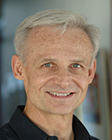 Professor Bruce R. Ransom. M.D. is Warren and Jermaine Magnuson Endowed Chair in Medicine for Neurosciences, Professor and Chair, Department of Neurology and Adjunct Professor, Department of Physiology and Biophysics. A neurologist with expertise in movement disorders and strokes that affect the white matter in the brain, Dr. Ransom conducts research focusing on astrocyte physiology and function and microglial cell function. His current research focuses on two distinct sets of problems; the physiology and function of mammalian glial cells, and the cellular and molecular pathophysiology of ischemic brain tissue injury. Through the results, his team aims to help define the molecular mechanisms that lead to ischemic axonal injury and have begun to suggest protective strategies.
|
||||||||||
| 12:00-12:25 |
 Lasse K. Bak received his PhD from University of Copenhagen in 2006, and was appointed associate professor in 2009. He is currently trying to understand the functional and metabolic outcomes of cAMP and calcium signaling events in brain cells, and how novel pharmacological tools may target these.
|
||||||||||
| 12:25-14:00 | Poster Session and Lunch | ||||||||||
| 14:00-15:40 | Session III Shining Light on Metabolism | ||||||||||
|
|||||||||||
| 14:00-14:25 |
 L. Felipe Barros qualified as a Medic in 1988 and then engaged in placental transport research, obtaining his PhD at 1993 at the Universidad de Chile, advised by David Yudilevich. After a three-year postdoc in Leeds working on glucose transporter biochemistry with Steve Baldwin, he returned to the University of Chile as an assistant professor, and then moved to Valdivia to join the Centro de Estudios Científicos in 2000. How do cells and tissues balance the flux of energy? His team approaches this type of question by developing genetically-encoded metabolite sensors and protocols to image metabolite levels, concentrations and fluxes in real-time with subcellular resolution. His favorite cell is the astrocyte, a key to the tangle of mechanisms that link energy and information processing in the brain.
|
||||||||||
| 14:25-14:50 |
 Bruno Weber received his training at the Unversity of Zurich and at the Max Planck Institute in Tübingen. He is now Professor of Experimental Imaging at the Institute of Pharmacology and Toxicology, University of Zurich and a steering committee member of the Neuroscience Center Zurich. His group uses a wide range of imaging tools to study the cell-to-cell communication pathways involved in energy metabolism and information processing in cerebral cortex. Dissecting the interaction of neurons and astrocytes with the vascular system, which is responsible for maintaining adequate delivery of oxygen and energy substrates to the brain, is another research focus of the team. The group also develops imaging systems for in vivo research.
|
||||||||||
| 14:50-15:15 |
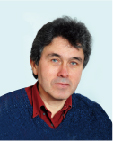 Prof. S Kasparov was born in Moscow in 1956. He studied medicine in the First Moscow Medical Institute and obtained MD in 1979. He then proceeded with PhD in pharmacology (1982) and later obtained the degree of Doctor of Medical Sciences (1994), the highest academic qualification in Russia. In 1991 he was awarded prestigious Alexander von Humboldt fellowship which he spent working at Max Plank Institute for Psychiatry in Munchen. In 1996 he joined Department of Physiology of Bristol University UK, and in 2009 became a professor of Molecular Physiology of that University. His current research is focused on signaling between different types of cells found in the mammalian brain, such as astrocytes and neurones. Much of his work is dedicated to development and implementation of new, innovative technologies. Specifically, he was the first to successfully use optogenetic actuators for studies of astrocyte-to- neurone communication.
|
||||||||||
| 15:15-15:40 |
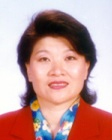 Sookja K. Chung is currently a Professor at the School of Biomedical Sciences & also hold the Honorary Professor position at the department of Ophthalmology at HKU. She is a member of State Key Laboratory for Pharmaceutical Biotechnology. In addition, she is a Visiting Professor at 4th Military Med Sch. Xian. She received her B.A. degree double majoring in Biology and Chemistry, then M.A at the Department of Chemistry, University of Illinois at Chicago, Chicago, U.S.A. She received her Ph.D degree at the Department of Anatomy & Cell Biology, University of Illinois College of Medicine, Chicago. She then work as a NIH Postdoctoral Fellow at Northwestern University Medical Center, Chicago. Afterward she moved to The Rockefeller University in New York, where she received a fellowship from the Norman and Rosita Winston Foundation. Since 1991, she has been with The University of Hong Kong as Research Officer at Institute of Molecular Biology to Professor in the Department of Anatomy and School of Biomedical Sciences. Her main research approaches are to generate transgenic and knockout mouse models with altered osmotic, oxidative and ischemia related gene to advance our understanding of disease process and potential drug discovery.
|
||||||||||
| 15:40--17:00 | Poster Session and Coffee Break | ||||||||||
| 17:00-18:15 | Session IV Regulation of Mitochondrial Metabolism: New Insights and Mechanisms | ||||||||||
|
Chair
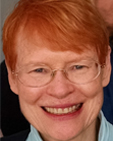 Mary C. McKenna, Ph.D. is Professor with tenure in the Department of Pediatrics and Program in Neuroscience at University of Maryland School of Medicine, Baltimore, MD, USA. Her research has focused on questions related to developmental brain injury, compartmentation of glutamate metabolism, regulation of key enzymes, and the regulation of energy metabolism in astrocytes and synaptic terminals for the past 33 years. Studies from her lab have significantly advanced the fundamental understanding of the complexity of metabolic compartmentation, neuronal/glial trafficking and both neuronal and astrocytic metabolism. Her lab uses the powerful technique of 13C-NMR spectroscopy to determine alterations in neuronal metabolism, neuron astrocyte trafficking, astrocytic metabolism, and astrocyte neuron trafficking in brain. Recent studies in her lab are focused in alterations in brain metabolism and neuroprotection in models of pediatric traumatic brain injury and neonatal hypoxia-ischemia. Dr. McKenna is one of the original founders of the International Conference on Brain Energy Metabolism (ICBEM) conference series. She has been on the organizing committee for all of the ICBEM conferences, from the first which was held in Carcassonne, France in 1993 to the 12th ICBEM conference in Hong Kong in 2016.
|
|||||||||||
| 17:00-17:25 |
Gary E. Gibson, PhD, is Professor of Neuroscience, Weill Cornell Medical College, the Brain and Mind Research Institute, Burke Medical Research Institute. His peer-reviewed publications include 172 RESEARCH PAPERS; 79 CHAPTERS and three edited volumes. His research has explored the role of mitochondria, metabolism and calcium in brain function and dysfunction. His studies have been directed toward better understanding of Alzheimer’s disease (AD) in order to develop new therapies. His research strategy is to use autopsy brains and living cells from patients with AD to identify novel, clinically relevant abnormalities [e.g., abnormalities calcium, thiamine (vitamin B1) dependent enzymes and mitochondrial enzymes] that will provide a foundation to understand the mechanism of changes in neurons. He then models the abnormalities with proteins, cells and animals to understand the underlying mechanisms and to develop new therapeutic approaches. Thiamine dependent enzymes are diminished in tissues from AD patients, and interfering with thiamine dependent enzymes can exacerbate plaque formation, phosphorylation of tau and the calcium changes that occur in cells from AD patients or animal models of AD. Thus, reversing these changes is an attractive therapeutic target. The goal of our research is to understand what causes these changes, their implications for brain disease and to develop strategies to reverse them.
|
||||||||||
| 17:25-17:50 |
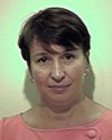 Susanna Scafidi, M.D. is an Assistant Professor in the Department of Anesthesiology and Critical Care Medicine at the Johns Hopkins University School of Medicine, Baltimore, MD, USA. She is Board certified in Pediatrics and Pediatric Critical Care Medicine and is active clinically as an attending physician at the Children’s Center at the Johns Hopkins University School of Medicine. Her research is focused on alterations of brain energy and metabolism following the injury to the developing brain, including traumatic brain injury. Studies in her laboratory are focused on evaluating alternative substrates as a therapeutic interventions to maintain oxidative metabolism after the injury. |
||||||||||
| 17:50-18:15 |
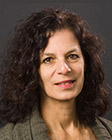 Elizabeth Ann Jonas currently holds a position as Associate Professor in the Department of Internal Medicine, section of Endocrinology and a secondary appointment in the Department of Neuroscience. She attended Yale University and New York University School of Medicine where she was elected to the Alpha Omega Alpha society. She maintains board certification in Neurology and in Internal Medicine and is active clinically as an attending physician at Yale-New Haven Hospital. Dr. Jonas is a previous recipient of a Physician Scientist award from the NIH, an NSF POWRE award and an American Heart Established Investigator award as well as other private foundation awards. Her laboratory work is currently supported by the NINDS. Dr. Jonas has recently been awarded the Jacob Javits Award for Achievement in Neuroscience. Dr. Jonas serves as a chair of the Bioenergetics Subgroup of the Biophysical Society and as the council head and meeting organizer of the New Haven unit of the William Osler Interurban Clinical Club. She also serves as chair of the awards committee for the Marine Biological Laboratory (MBL) in Woods Hole, MA and is a faculty member of the NSF REU program at the MBL. Also at the MBL, she has recently served as an advisor to the Grass Fellowship Program. She has just completed service as a permanent member of the NIH Study Section of Neural Oxidative Metabolism and Death where she now serves an ad hoc role. She is serving as an associate editor at the FASEB Journal. Her current scientific work concentrates on understanding synaptic function and neuronal cell death from the point of view of metabolic control, chiefly focusing on mechanisms of mitochondrial dysfunction in synapses within neurons undergoing developmental and neurodegenerative disorders. Recent discoveries in her laboratory place Dr. Jonas’ work at the center of a scientific controversy regarding the molecular identity of the long-sought after cell death-inducing ion channel known as the mitochondrial permeability transition pore (mPTP) and her laboratory is actively working to further define these findings using structural biology, mitochondrial ion channel recordings and mutagenesis. Key words:Synaptic plasticity, mitochondria, Bcl-xL, neurodegeneration, ATP synthase, permeability transition pore. |
||||||||||
| DAY 3 May 27, 2016 (Fri) | |||||||||||
| 9:00-10:15 | Session V:Compartmentation of Bioenergetic Processes to Support Brain Function | ||||||||||
|
Chair
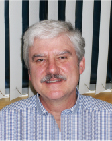 For his Ph.D. thesis, Dr. Robinson characterized the properties of excitatory synaptic transmission in transverse hippocampal slices and combined these studies with analyses of excitatory amino acid ligand binding in the laboratory of Dr. James Koerner. For his post-doctoral training (laboratory of Dr. Joseph Coyle), he used a variety of approaches to study the properties of an enzyme that degrades the acidic dipeptide N-acetyl-aspartylglutamate and nearly purified this enzyme to homogeneity. When he joined the faculty at the University of Pennsylvania/Children’s Hospital of Philadelphia, he focused his work on studies of glutamate transporters and analyses of various models developmental disability. His laboratory has used a variety of model systems including transfected cells, primary brain cultures, brain slices, and whole animals and uses many different cellular and molecular techniques, including biotinylation of cell surface proteins, qualitative/quantitative immunofluorescence, chromatin immunoprecipitation (ChIP), dynamic imaging, and viral vectors (particularly lentivirus) to introduce exogenous genes or to introduce shRNAs. More recently, his laboratory has focused on the interface of glutamate transporters, mitochondria/energetics, and astroglial biology. Dr. Robinson is Director of an NINDS funded Post-Doctoral Program titled “Training Program in Neurodevelopment Disabilities” and he Co-Directs the NICHD funded “Intellectual and Developmental Disabilities Research Center at CHOP/PENN”.
|
|||||||||||
| 9:00-9:25 |
 Dr. Jackson’s thesis work was conducted in the laboratory of Dr. Stanley Thayer at the University of Minnesota and focused on understanding the regulation of the endoplasmic reticulum and mitochondrial Ca2+ stores in sensory neurons. As a postdoctoral fellow with Dr. Philip Haydon at the University of Pennsylvania, he examined astrocyte Ca2+ signaling and amyloid deposition in a mouse model of Alzheimer’s disease using two-photon in vivo microscopy. He joined Dr. Michael Robinson’s laboratory at the Children’s Hospital of Philadelphia for a second postdoctoral fellowship. His current work combines molecular biology, biochemistry, and dynamic imaging to examine functional and physical interactions between glutamate transporters, mitochondria, and Ca2+ signaling in astrocytes.
|
||||||||||
| 9:25-9:50 |
 Professor Albert C.H. Yu received his BSc, MSc and PhD from the University of Saskatchewan, Canada and spent subsequent years in the Canada, United States, Hong Kong, and China. Professor Albert C.H. Yu has devoted over two decades in neuroscience and infectious disease research and had significant contributions to molecular neurobiology and molecular diagnosis. Professor Yu is now the Vice-Director of the Neuroscience Research Institute, Professor of the Department of Neurobiology and also a Professor at the Infectious Disease Center at Peking University. Prof. Yu has published several books and over 200 peer-reviewed scientific articles and conference papers. He is also the co-inventor of numerous technologies with patents granted in major countries.
|
||||||||||
| 9:50-10:15 |
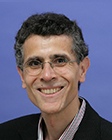 Amin Derouiche graduated as a dental surgeon at Goethe-University of Frankfurt. For his doctorate degree, he investigated nerve fibre regeneration in the CNS, at the Anatomy Dept. at Guy’s Hospital, London, and then trained as an anatomist, working at various medical schools in Germany. His neuroanatomical research has focussed on astroglial cells, in particular on distribution of glutamine synthetase and organelles, in relation to neurotransmission. In the context of glia-synaptic interaction, he currently studies the ultrastructural organisation of peripheral astrocyte processes and vesicular organelles involved in gliotransmission. He is Assitant Professor at Goethe-University of Frankfurt.
|
||||||||||
| 10:15-10:35 | Coffee Break | ||||||||||
| 10:35-12:35 | Student Blitz | ||||||||||
|
Chair
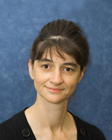 Caroline Rae is a biochemist with a background in magnetic resonance and interdisciplinary brain research. She graduated with a PhD in biochemistry and NMR from The University of Sydney in 1993 and spent four years in Oxford, UK, as a Nuffield Medical Fellow where she pioneered the use of magnetic resonance spectroscopy as a tool in cognitive brain research. In 2005 she was appointed to UNSW as a NewSouth Global Professor, one of only a handful of NHMRC R Douglas Wright Fellows subsequently appointed to chairs. She is currently director of the UNSW Node of the National Imaging Facility and holds a cross-disciplinary (STEAM) appointment in medical data visualisation as a Director of the UNSW Expanded Perception and Interaction Centre (EPICentre).
|
|||||||||||
| 12:35-14:00 | Poster Session and Lunch | ||||||||||
| 14:00-15:40 | Session VI lonic Signalling and Integrative Function of Astroglia | ||||||||||
|
|||||||||||
| 14:00-14:25 |
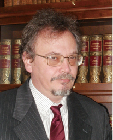 Professor Alexei Verkhratsky, PhD, D.Sc, Member of Academia Europaea (2003), Member of the German National Academy of Sciences Leopoldina (2013), Member of Real Academia Nacional de Farmacia of Spain (2012), member of The Dana Alliance for Brain Initiatives (2012), was born in 1961 in Stanislaw, Galicia, Western Ukraine. Alexei graduated from Kiev Medical Institute in 1983, and received PhD (1986) and D.Sc. (1993) in Physiology from Bogomoletz Institute of Physiology also in Kiev. In the period between 1989 and 1995 he was visitor scientist in Heidelberg and Gottingen, and between 1995 and 1999 he was a Research Scientist at Max Delbrück Centre of Molecular Medicine in Berlin. He joined the Division of Neuroscience, School of Biological Sciences in Manchester in September 1999, became a Professor of Neurophysiology in 2002 and served as Head of the said Division from 2002 to 2004. From 2007 to 2010 he was appointed as a visitor professor/Head of Department of Cellular and Molecular Neurophysiology at the Institute of Experimental Medicine, Academy of Sciences of Check Republic. Alexei also serves as a Research Professor of the Ikerbasque (Basque Research Council) in Bilbao, where, from 2012, he acts as Adjunct Scientific Director of the Achucarro Basque Center for Neuroscience; from 2011 he is as a Honorary Visitor Professor at Kyushu University, Fukuoka, Japan. Alexei is the editor-in-chief of Cell Calcium, Receiving Editor of Cell Death & Disease and member of editorial boards of many journals including Pflugers Archiv European Journal of Physiology, Glia, Purinergic Signalling, ASN Neuro &c. Alexei Verkhratsky is an internationally recognised scholar in the field of cellular neurophysiology. His research is concentrated on the mechanisms of inter- and intracellular signalling in the CNS, being especially focused on two main types of neural cells, on neurones and neuroglia. He made important contributions to understanding the chemical and electrical transmission in reciprocal neuronal-glial communications and on the role of intracellular Ca2+ signals in the integrative processes in the nervous system. Many of Alexei’s studies are dedicated to investigations of cellular mechanisms of neurodegeneration. A. Verkhratsky was the first to perform intracellular Ca2+ recordings in old neurones in isolation and in situ, which provided direct experimental support for “Ca2+ hypothesis of neuronal ageing”. In recent years he studies the glial pathology in Alzheimer disease. He authored a pioneering hypothesis of astroglial atrophy as a mechanism of neurodegeneration. Scientometry: Prof Verkhratsky authored and edited 12 books and published ~ 350 papers and chapters. His papers were cited >14000 times, H-index 66 (ISI, 01/2016). Most cited 30 European neurosicnetists http://www.labtimes.org/labtimes/ranking/2016_01/index2.lasso |
||||||||||
| 14:25-14:50 |
 Graduated with MSc in Physics, obtained a PhD in Biophysics / Neurobiology in 1988 from Bogomoletz Institute of Physiology (NAS, Kiev, 1988). From 1992 worked with Mike Stewart and Steven Rose (Open University), from 1998 with Tim Bliss and Alan Fine (National Institute for Medical Research, Mill Hill, London). Started an independent career in 1999 (MRC Career Development Award) at NIMR. Since 2000 has been at University College London Institute of Neurology, Queen Square. Obtained Wellcome Trust Senior Fellowship in 2003, renewed in 2008. In 2007 appointed Professor and Chair of Neuroscience. Elected to Academia Europaea in 2012, in 2013 obtained Wellcome Trust Principal Fellowship Award. In 2014 elected Chair, Section of Physiology and Medicine, Academia Europaea. Research interests include mechanisms of central synaptic transmission, formation of memory trace, astroglia-neuron communication, and principles of signal integration in the brain, in health and disease.
|
||||||||||
| 14:50-15:15 |
 Stéphane Oliet is Deputy Director of the Neurocentre Magendie in Bordeaux. He obtained his PhD in 1995 from McGill University investigating the cellular basis of osmoreception under the supervision of Pr. Charles Bourque. He then worked as a Human Frontier postdoctoral fellow at UCSF in the laboratory of Pr. Roger Nicoll where he studied hippocampal synaptic plasticity. In 1997, Dr Oliet was recruited as a permanent scientist at CNRS in Bordeaux. Since then he became a group leader focusing his work on neuron-glia interactions and more specifically on the ability of astroglial cells to impact synaptic functions through different active processes such as gliotransmission and the uptake of neurotransmitters. He is a member of the Academia Europaea and served as a member of different scientific boards including the Société des Neurosciences and FENS.
|
||||||||||
| 15:15-15:40 |
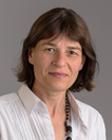 Christine R. Rose: Diploma in Biology, University of Konstanz, Germany. Dissertation (Dr. rer. nat.), University of Kaiserslautern, Germany. 1994 – 1997: Postdoctoral Associate, Department of Neurology, Yale University School of Medicine, New Haven, CT, USA. 1997 – 1999: Post-doctoral fellow at the Dept of Physiology, Medical Faculty, Saarland University, Homburg, Germany. 2000 – 2003: Post-doctoral fellow at the Dept of Physiology, Technical University and Ludwig-Maximilians-University Munich, Germany. 2002: Professional dissertation (Habilitation) in Physiology, Ludwig-Maximilians University Munich, Germany. 2003 – 2005: Heisenberg-Stipend of the German Research Association (DFG), Dept of Physiology LMU Munich, Germany. Since 2005: Full Professor and Head of the Institute of Neurobiology at the Heinrich Heine University Duesseldorf, Germany.
|
||||||||||
| 15:40-16:00 | Coffee Break | ||||||||||
| 16:00-17:15 | Session VII Astrocyte Gliotransmission and Metabolism | ||||||||||
|
Chair
 Vladimir Parpura, MD, PhD, MAE, holds both a medical degree, awarded from the University of Zagreb in Croatia in 1989, and a doctorate, received in Neuroscience and Zoology from Iowa State University in 1993. He previously held faculty appointments at Iowa State University, University of California Riverside, and University of Rijeka, Croatia. He has been elected as a Member of Academia Europaea (MAE) in 2012. He is presently a tenured Professor in the Department of Neurobiology, University of Alabama at Birmingham, U.S.A. His current research includes: i) studying the modulation of the Ca2+-dependent glutamate release from astrocytes in health and disease; ii) assessing the role of the enteric glia in gut functions; iii) visualization of vesicular/receptor trafficking; iv) examination of the nature and energetics of interactions between exocytotic proteins using single molecule detection approaches; v) development of scaffolds and dispersible materials, most notably modified carbon nanotubes, which can be used in repair after brain injury and/or for the brain-machine interface; vi) development of biosensors (e.g. botulinum toxin and nanofabricated carbon-based detectors); and viii) bio-mimetic micro-robotics. The work done in these overlapping categories is highly interrelated. Parpura has been interfacing neuroscience with nanoscience/nanotechnology, synthetic biology and biomedical engineering.
|
|||||||||||
| 16:00-16:25 |
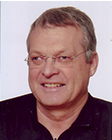 Robert Zorec is Professor of Pathophysiology at the University of Ljubljana, Medical Faculty, a Full Member of Academia Europaea (London) and Slovenian Academy of Sciences and Arts (cont. of Academia Operosorum Labacensis from 1693), as well as a past Member of the Committee for Advanced Medical Products at the European Medicine’s Agency (London). Dr. Zorec received his Ph.D. from the University of Ljubljana in 1986 for his work conducted at the Newcastle Medical School and at the MRC Neuroendocrinology Unit in Newcastle upon Tyne, U.K, and introduced the "patch-clamp" method in Ljubljana in 1985. Dr. Zorec postdoctoral experience was at Cambridge in Dr. W. T. Mason's laboratory. Independently of the laboratory of the Nobel Laureate Erwin Neher, he developed his own membrane capacitance measurements (MCM) to monitor processes such as endo-and exocytosis in real time. In Prof. M. Berridge's laboratory at the Cambridge University, he studied cytosolic calcium homeostasis by the imaging related to MCM approach. He also worked in Dr. R.N. McBurney's laboratory studying single channel chloride currents activated by GABA and glycine in spinal cord neurons. In 1991 he was conducting experiments on plant secretory cells at the University of Adelaide, Australia and his MCM technique rounded up by the papers in Nature Protocols in 2013 (8:1169) and in Nature Communications in 2014 (5:3780), focusing into the mechanisms of regulated exocytosis in endocrine pituitary cells, plant cells, hepatocytes, adipocytes, skeletal muscle, taste cells, neurons and glia. Since 1991 he has been the Head of Laboratory of Neuroendocrinology-Molecular Cell Physiology and in 1997 he received the Republic of Slovenia Prize for Science. In 2000 he established the Cell Engineering Laboratory at the Celica BIOMEDICAL, Ljubljana Tech Park (http://celicabiomedical.com/) where he has been a CEO since 2006 and the head of the Carl Zeiss Reference Center for Confocal Microscopy. During the last 15 years he developed research on astrocytes, the most abundant glial cells in the brain, to learn how vesicle traffic and regulated exocytosis is altered in these cells under pathological conditions, specifically related to the mechanisms of cytotoxic edema, astroglial scarring, in the acute and chronic trauma as well as in neurodegeneration (Alzheimer’s disease) and neurodevelopmental conditions including intellectual disability. In addition to MCM, Dr. Zorec developed Super-Resolution Fluorescence Microscopy to study subcellular vesicle traffic and collaborates with a wide circle of scientists such as Drs. B. Betz, Stefan Hell, Y. D. Teng, V. Parpura, M. Potokar, A. Araque, G. Carmingnoto, A. Verkhratsky, P. Haydon and has published > 155 peer reviewed papers. He has lectured at over 100 distinguished Universities, International Meetings and Research Institutions worldwide. He has been a reviewer for leading scientific journals including Nature, Science, PNAS, J. Neurosci., J. Physiol., Biophys J., Brain Res. and others. Recently, together with Dr. Y.D Teng from Harvard he found a robust new endogenous mechanism of cytotoxic edema reduction in astrocytes, which leads to new paradigms of treatment of CNS trauma. Importantly, not only in trauma, astrocytes also play a pivotal role in neuron-glia signaling in other pathological conditions and represent a target for new therapeutics including those for regeneration to be developed in the future for neurological diseases. In addition to basic research focusing into physiological and pathological problems, the lab is also developing advanced cell-based medicines such as hybridoma cells to treat cancer, a product HybriCure® is currently in clinical trial. His work was and is supported by different grants from EU and other countries (the British Council and The Wellcome Trust Fellowships, Fulbright Scholarship, Research Council of Slovenia, Nuffield Foundation, EduGLIA, NIH).
|
||||||||||
| 16:25-16:50 |
 Professor Helle S. Waagepetersen’s research in NeuroMet (Neurometabolism Research Unit) is focused on energy and amino acid metabolism in the mammalian brain. Primary mouse cell culture systems of neurons and astrocytes from cerebral cortex or cerebellum are extensively employed. In addition, acutely isolated hippocampal and cortical slices, isolated mitochondria and cell lines are applied as model systems. Arrays of 3H, 15N and 13C isotopes are utilized in the mapping of metabolic pathways and their regulation. 13C NMR, HPLC and mass spectrometry are key analytical tools combined with biochemical assays. Current research work of Professor Waagepetersen includes elucidation of mechanisms involved in the regulation of energy metabolism in neurons, brain glycogen metabolism in relation to diabetes, and brain metabolism in hepatic encephalopathy.
|
||||||||||
| 16:50-17:15 |
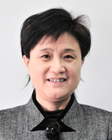 Dr. Wang is currently serving as a Professor and Director of Pathophysiology and Key Laboratory of Chinese Education Ministry; Deputy Director of Faculty of Basic Medicine and Research Institutes for Medical Science. She has been also honoured with various honarariums and awards.
|
||||||||||
| 17:15-21:30 | Gala Dinner | ||||||||||
| DAY 4 May 28, 2016 (Sat) | |||||||||||
| 9:00-10:40 | Session VIII Use of Anaplerotic Substrates for Brain Metabolic Disorders | ||||||||||
|
|||||||||||
| 9:00-9:25 |
 The focus of my research is to investigate the neurochemical, neuroenergetic and metabolic basis of brain function in vivo. To achieve this goal, I develop new spectroscopic techniques (1H MRS, 31P MRS, 13C MRS) at high magnetic field as well as new metabolic modeling approaches to measure brain metabolic fluxes in vivo using 13C-labeled molecules as metabolic tracers. I employ such techniques to assess neurochemistry and brain energy metabolism, with particular emphasis on neurodegenerative disorders such as Huntington’s Disease and Friedreich’s Ataxia. I have been collaborating with Dr. Fanny Mochel for several years to apply MRS techniques to the assessment of brain energy metabolism following triheptanoin therapy in humans.
|
||||||||||
| 9:25-9:50 |
 Fanny Mochel is an associate professor of genetics at the University Pierre and Marie Curie (UPMC). She received her MD in Genetics in 2005 at the University Paris Descartes, her PhD in Neuroscience in 2010 at UPMC and is board certified in inborn errors of metabolism. Dr Mochel runs a neurometabolic clinic at La Pitié-Salpêtrière University Hospital and is the head of the Neurometabolic research group. She is co-chair of the French society for inborn of errors of metabolism in adults and a scientific board member of the Fondation Lejeune. Her research is focused on the characterization and treatment of brain energy deficiencies in neurometabolic and neurodegenerative diseases. Her major areas of expertise are the identification of neurometabolic biomarkers in vitro (metabolomics) and in vivo (nuclear magnetic resonance spectroscopy) as well as therapeutic approaches targeting the Krebs cycle (patents WO 2008068230 A1 and WO 2014093901 A1).
|
||||||||||
| 9:50-10:15 |
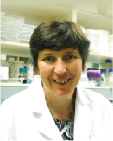 Dr. Borges has a Diploma in Biology from the University of Freiburg (Germany). Studying glutamate receptors in glial cells, she received a PhD in Neurobiology at Heidelberg University in 1994. She continued her education as a postdoctoral fellow at the Department of Pharmacology at Emory University working on the regulation of transcription of the glutamate receptor subunits, GluR1 and GluR4. Since 2001, she has been interested in the morphological and functional changes involved in the development epilepsy, first as an instructor at Emory University, then as Assistant Professor at Texas Tech University (2005-2008) and currently at the University of Queensland as a Senior Lecturer. Her long-term goal is to find new treatments for epilepsy and other neurological disorders. Dr. Borges discovered that triheptanoin is anticonvulsant in four mouse epilepsy models (patent filed) and supervises clinical trials for add on triheptanoin in patients with epilepsy. Currently, Dr. Borges’ team is further exploring the mechanisms of triheptanoin in mouse models of epilepsy, stroke and also Amyotrophic Lateral Sclerosis.
|
||||||||||
| 10:15-10:40 |
 Dr. Susan Aja is a physiologist and behavioral neuroscientist with broad expertise in the area of energy balance. Her research interests began with CNS neurotransmitter/neuropeptide controls of food intake and feeding behavior, and have grown to include pharmacological and dietary approaches to treating disease by modulating activities of metabolic pathways. She is core faculty with and Acting Director of the Center for Metabolism and Obesity Research (CMOR) at the Johns Hopkins University School of Medicine, where she established and directs the CMOR service core for in vivo rodent metabolic assessment. Her current activities also include metabolomics with the Center for Resources in Integrative Biology/Molecular Determinants. Dr. Aja strives to facilitate interactions among these and other laboratories and research resources to enhance utilization of and advancement of metabolic research.
|
||||||||||
| 10:40-10:55 | Coffee Break | ||||||||||
| 10:55-12:10 | Session IX Brain Metabolism in Ageing and Neurodegenerative Disorders | ||||||||||
|
|||||||||||
| 10:55-11:20 |
 Selva Baltan received her MD from Hacettepe University, Turkey, and her PhD in Neurophysiology from McGill University, Canada. She was a American Heart and Stroke Fellow at Neurology Department, Washington University, MO, USA. She was an Associate professor at Neurology Department, University of Washington, Seattle, WA before she moved as Staff to Neurosciences department, Cleveland clinic, Cleveland, OH. Her research focuses on the mechanisms of brain cell damage in white matter after stroke as a function of age.
|
||||||||||
| 11:20-11:45 |
 Dr Chan-Ling has made a sustained contribution to the understanding of glial-vascular biology during normal CNS development as well as understanding to the disease processes in Retinopathy of Prematurity (the leading cause of infant blindness in the world), multiple sclerosis, cerebral malaria and experimental inflammation using experimental models of disease. Tailoi's work aims to shed light on the earliest initiating events in diseases affecting sight and the central nervous system, with the aim of developing therapies that attack the cause of disease rather than treating the symptoms. Her research interest cover mitochonrial function, pericyte biology and cellular & molecular mechanisms of CNS angiogenesis. Tailoi Chan-Ling is Professor of Neurobiology and Visual Science in the discipline of Anatomy, School of Medical Sciences, Faculty of Medicine, Bosch Institute, The University of Sydney. She is also an Adjunct Professor of Ophthalmic Science (Ophthalmology), Harkness Eye Institute, Columbia University Medical Center, New York. She is on the editorial board of 3 International peer review journals and is a regular invited speaker at key international meetings on angiogenesis, vascular biology, Glial biology and Retinal biology. She is currently the Secretary of the Internatinal Society for Eye Research and representative for Australia and New Zealand on the International Liaison Committee for the World Congress for Microcirculation. She serves in a number of capacities within the University including, Executive Leadership Group of the Bosch Institute; University of Sydney, Harassment and Discrimination Support Officer, 2001-; Honorary Research Associate: Institute of Clinical Neurosciences, Royal Prince Alfred Hospital, 1998-; Academic Board Nominee, University of Sydney, 2007-: Consortium leader: Replacement of Confocal Microscope Bosch Microscopy Facility. Dr Chan-Ling maintains a number of international and national collaborations thus expanding the types of research opportunities/experience available in her laboratory. |
||||||||||
| 11:45-12:10 |
 Prof. Yuguo Yu obtained Ph.D (2001) in biophysics at Nanjing University. He was trained in Computational/Behavior Neuroscience at Carnegie Mellon University as a Postdoctoral Fellow from 2001 to 2004; and Associate Research Scientist at Department of Neuroscience at Yale University from 2005-2011. Then he became a full professor at Fudan University. He was a recipient of the Shanghai Eastern Scholar Professorship (2013). He has published over 30 peer-reviewed papers in high profile journals that include Nature, Neuron, PNAS, J.Neurosci etc. His research interests include cellular mechanisms of cortical spiking dynamics and information processing, synaptic mechanism of learning and information storage, brain energetics, large scale of cortical network modeling.
|
||||||||||
| 12:10-12:35 | Closing Ceremony | ||||||||||

